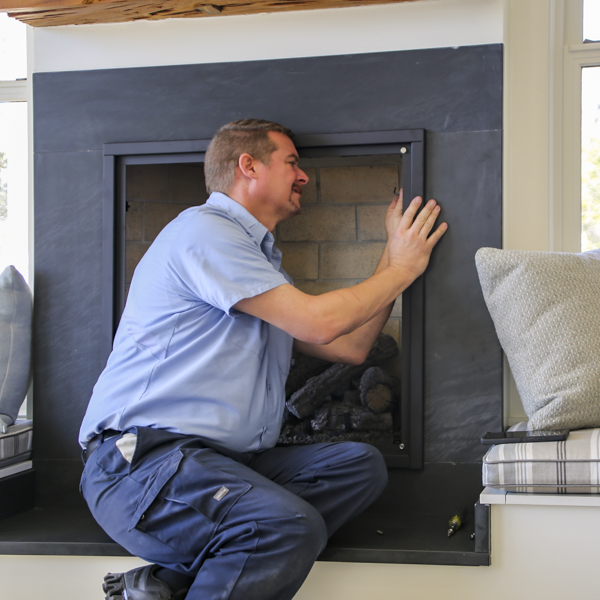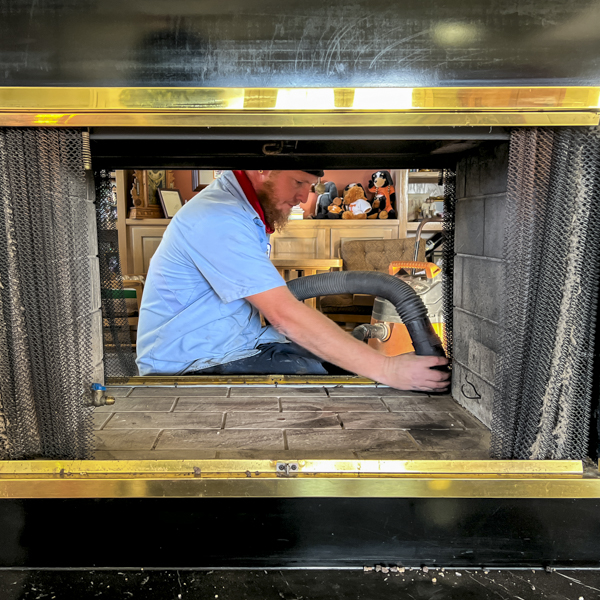- PENSACOLA SHOWROOM: 7555 Highway 98 West, Suite A, Pensacola, FL 32506
- DESTIN SHOWROOM: 36054 Emerald Coast Pkwy #100, Destin, FL 32541
In Florida, we don’t have the brutal winters that our neighbors up north have, but we do have some chilly weather that causes us to crank up our fireplaces or stoves to make our homes a little more comfortable.
The science of heat is profound, but there are a few parts of it we’d like to talk about here. Doodlebuggers Fireplace, Grill & Outdoor Store of Pensacola, FL, and Destin, FL, is in the business of installing and repairing fireplaces, stoves, and fireplace inserts. We’re also in the business of heat.
 Conduction heat
Conduction heatConduction heat comes from the transfer of heat from solid materials. No air or blowing is involved in creating this type of heat; rather, it’s the vibration of particles within the hot object that makes the heat.
A good example of conduction heat in relation to fireplaces is the refractory panels in the firebox. They absorb and retain heat and give off that heat to the room and its occupants.
This type of heat involves hot objects, but the transfer of the heat is done by air. Convection heat in the air is lighter than the cool air into which it moves. We see this when a chimney flue is full of cold air, and the warm air and smoke from a fire sometimes back up a little bit before the flue warms up.
Fireplaces and stoves with blower devices are examples of convection heating with a home heating appliance.
Similar to conduction heat, radiant heat travels in a wave to heat objects in its path. The objects then produce their own radiant heat to add to the overall warmth of the area.
The sun is a good example of radiant heat, as are radiant heaters and radiators on the wall.
Beyond all the science, most people are simply concerned with having their fireplaces and stoves work optimally so they can enjoy the warmth when they need it.
Here are some helpful tips for the optimal use of your heating appliances.
A chimney full of creosote and outside debris will lead to sluggish log burning and not-very-robust fires.
 Have your gas unit serviced
Have your gas unit servicedSchedule yearly safety inspections for gas fireplaces and stoves. Your inspector will check for gas leaks and damage that could cause the appliance to produce less heat and operate unsafely.
For wood appliances, air is a key component of fire and warmth. If your home is too airtight, your firebox may not get enough air to create a proper draft. Air is what allows a fire to burn hot and aggressively. Crack a window if you have this problem.
Damp logs don’t burn very hot, and they don’t burn completely. Use seasoned logs that have been allowed to dry for at least six months. This will produce hotter, more robust fires.
Annual inspections and service are important for all types of supplemental heating appliances. A unit that works correctly and safely will bring you more heat, comfort, and enjoyment.
Doodlebuggers is standing by to help with all your fireplace and chimney needs. We provide chimney sweeping, chimney repairs, and chimney inspections, along with inspections of all types of fireplaces, stoves, and inserts. If you’re looking for a new appliance, we install all of them correctly and according to code.
Reach a fireplace expert today at (850) 477-1151 in Pensacola, FL, or at (850) 243-0154 in the Destin, FL, area. You can also get in touch with our handy contact form.